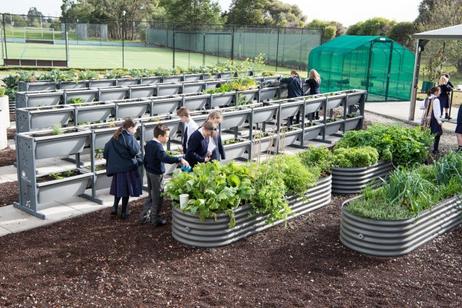How sustainable is your school? This article is written with small to medium-sized schools in mind. Larger schools can plan and use professional resources of all kinds to ensure their sustainability for the future. On the other hand, small schools typically have limited resources, to begin with. So with this in mind, I want to look at three aspects of how your school runs and offer some suggestions as to how we can ensure it will run for many years to come. In other words, let's ensure that your school is sustainable and will continue to be sustainable for many more years.
We are going to look at two types of day schools: for-profit schools and not-for-profit schools. A large number of primary schools are what we would describe as for-profit schools. These are the kinds of schools that a well-intentioned, visionary educator has established because she believes in a certain teaching style and wants to reach a certain clientele in her local area. I use the description of well-intentioned advisedly because many of these wonderful people have great pedagogical ideas but lack the business experience to make their school an ongoing reality. Here are some practical steps that the owner of a small primary school should take to ensure that her school stays viable.
Develop a business plan.
When you started your school, you knew that it was not enough to think that you could budget for, say, 50 students and charge tuition at the market rate, and that was all there was to it. You developed a sound business plan with realistic projections of your expenses as well as realistic projections of your income. You sought professional help from an account and/or a trusted business person. That business plan you developed looked carefully at the local market conditions, a viable business model, and your finances. Let's review each business plan component with a view to the sustainability factor.
Understand the local market conditions.
Your business plan was based on knowledge of your local market. For example, you knew how many other schools served your local market. You also knew what the growth projections were for the area in which you live. Incidentally, these are readily available from sources such as Wikipedia. This data gave you the information you needed to make sound enrollment projections in future years. Understanding all this data is critical because your school serves a local rather than a regional, national, or international market.
Where sustainability comes into this business plan is understanding how the demographics of an area change. For instance, in Raleigh, North Carolina, inside the beltline used to be where everything happened. If you lived inside the beltline, you were part of the action. North Raleigh, Cary, and Morrisville in the south were back in the country in 2000. The booming parts of the metro Raleigh area are North Raleigh and Cary/Morrisville. You need to extrapolate such population growth changes in your local area and try to project where the growth will be. Why? Because ideally, you need to be in a growth area to stay in business or in an area with a constant influx of new families that will provide you with the clients you need and want to keep your school going.
Business model
The typical private school business model assumes that your income primarily comes from tuition. The problem with that model is that it is not sustainable in the long term because you have to keep increasing tuition to offset rising expenses. Fundraising is always an option. Indeed you must include fundraising in any serious attempt to keep your school sustainable. Other sources of revenue worth looking into are preschool and after-school care programs. Yet another is a summer program. Most private schools operate from September through early June. Therefore, taking advantage of the need for well-run summer programs during academic downtime makes sense.
Implicit in your business model is the need to find qualified teachers. Your school's reputation rests to a considerable extent on its teachers. Qualified teachers cost money. If you are going to attract good teachers, you need to offer a compensation package that is not only competitive but one which will encourage teachers to stay on from year to year.
The critical thing to do with your business model is to develop relationships with similar private schools in your area and your region. Exchanging ideas of what works in the present economy is fundamental to creating a sustainable school.
Develop a pipeline of potential families. Reach out to them with open houses and other events open to the public, such as concerts and sports. You will find that becoming friends with a thriving local realtor will help develop your pipeline. So will regular communications with the human resources departments of local businesses. Employees move in and out all the time. They can and should be a steady source of new students for you.
Be flexible with your application deadlines. If you are a school that typically has just enough applicants for available places, then consider using rolling admissions. As your school's reputation grows, hopefully, you will be better positioned to institute an application deadline. Having more applicants than places is a desirable position to be in and will solidify your school's sustainability.
Finances
Managing your working capital and cash flow are critical parts of your business model with severe impacts on sustainability. Even a small school needs a professional accountant to manage its books and alert you to any expected or, worse yet, unexpected deviations from the budget. This is one area where technology makes the accounting side of your operation so much easier. Your books can be online. Give your account access; he can check things out regularly and efficiently. Find sponsors for events. A couple of local business people who rely on the goodwill and patronage of your school families will usually be happy to buy an ad in a program or put up a banner.
The following video offers an in-depth review of accounting for non-profit organizations.
Conclusion
I am really suggesting that you or another trusted partner needs to manage the business side of your school as capably as you manage the academic side of things. The two aspects of running your school go hand in hand and will go a long way to creating what you so earnestly long for a sustainable school.
More Reading
- The Independent School Financial Model is Broken
- Thoughts on Elite Private Independent Schools and Public Education Reforms
Questions? Contact us on Facebook. @privateschoolreview















